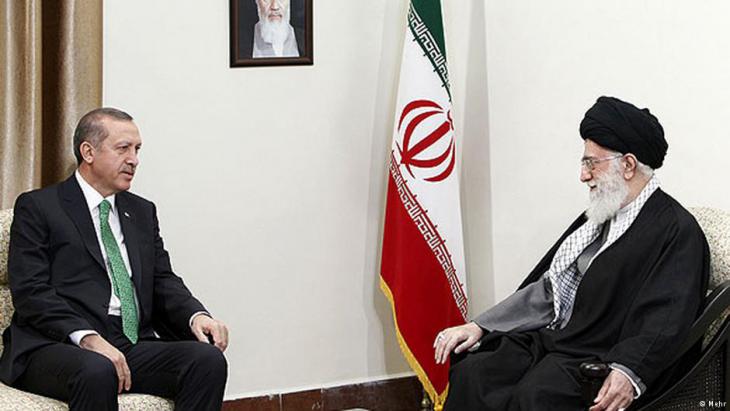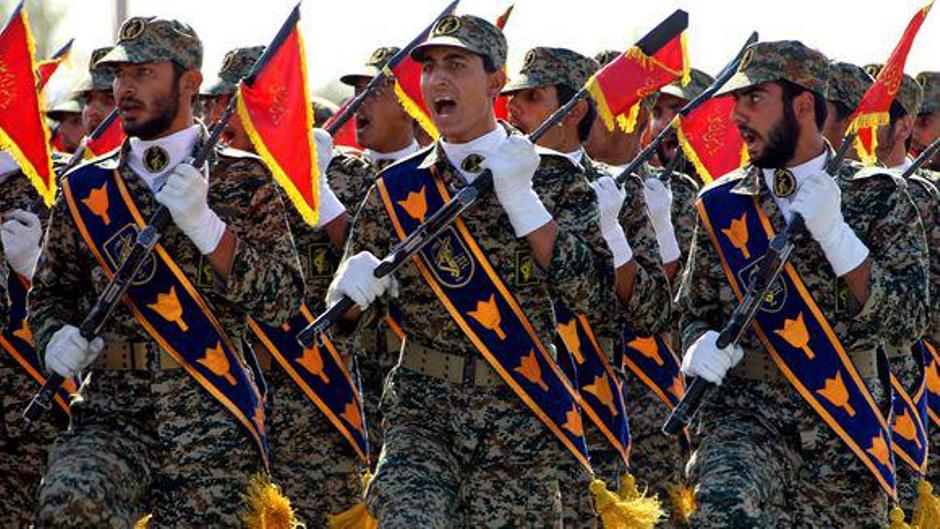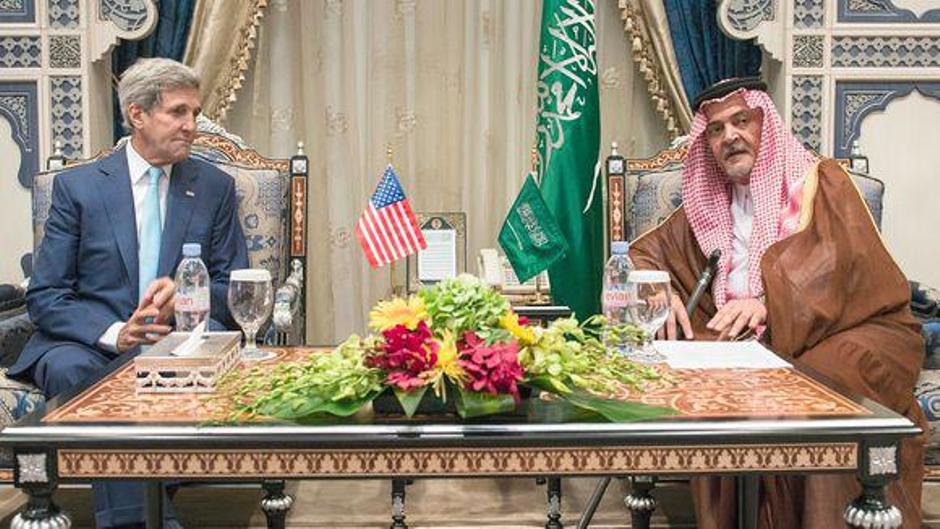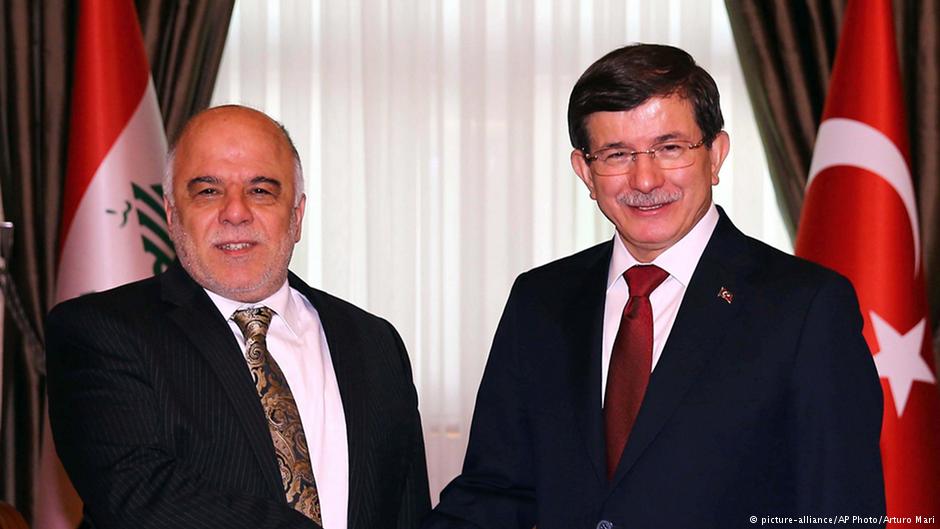New regional power games

Who would have thought that a US Secretary of State would one day effusively welcome Iranian military action? Yet this is exactly what John Kerry did after Islamic Republic fighter jets bombed several Islamic State (IS) positions in the east of Iraq in early December.
America's overtures to Tehran are not new. US President Barack Obama had previously appealed to Supreme Leader Ayatollah Ali Khamenei to conduct a joint campaign against the new enemy, IS, and signalled the possibility of new concessions in the nuclear standoff.
White House spokesman Josh Earnest may have recently denied any military co-operation or exchange of intelligence with Tehran, but US military circles have for some time now conceded that there is contact with the Iranian leadership via the Iraqi government in Baghdad, which serves as a kind of interface.
A region in flux
The Middle East has undergone fundamental change in 2014. For decades previously, the US and Europe maintained good relations with Israel and Saudi Arabia. As a NATO partner, Turkey was already on side. The troublemaker and "rogue state" Iran was isolated after the Islamic Revolution. And to make absolutely certain of stability in the Middle East, troops were stationed in the region and aircraft carriers sent to traverse the waters.
Then suddenly a jihadist group emerged to capture large swathes of territory and declare a caliphate in the heart of this region. The "Islamic State" was born, putting an end to the status quo. No event of the past decade has made it so clear that the political destiny of the region can no longer be manipulated in the interests of the West.
Stephen Walt, professor of International Affairs at Harvard University, describes current US policy thus: the Bush era saw attempts to control the region through direct military intervention. Following the failure of this strategy, made evident by the Iraq war, the accent was then placed on a policy of balancing out power with regional players – with as little military intervention as possible. According to this credo, the US did not have to dominate the region, but just to ensure that no one else was allowed to rule the roost.
This strategy only paid off until it became clear that the traditional states in the region were themselves undergoing internal political upheaval, and the US and Europe realised that they were more dependent on these powers than vice versa.

Iran as a key opponent of IS
This is most evident in the case of Iran. The Islamic Republic is turning out to be one of the most important political and military opponents of IS. But more than that, when the Iraqi government found itself beset by IS jihadists, Iran was the first nation that rushed to Baghdad's aid by despatching elite Iranian Quds special forces to Iraq to stop the IS advance.
Quds Force Commander General Qassem Suleimani even allowed himself to be filmed for Iranian television together with Kurdish peshmerga fighters in Iraq. The message is clear: Iran wants to market itself as a key factor in the war against IS in Iraq. The word in Tehran is that without the Quds Force, Baghdad would be in the hands of "Islamic State". "Islamic State operations could only be halted through the experience and advice of the Islamic Republic," said Yadollah Javani, advisor to Supreme Leader Ayatollah Khamenei, adding that instability on Iran's border would not be tolerated.
Iran stationed artillery and military personnel in the eastern Iraqi province of Diyala to attack IS positions there. Later, Iranian advisors helped to end the IS siege of the Shia Iraqi town of Amerli. The climax of the Iranian campaign against IS so far was reached with a number of air raids in December.
Despite its increasing importance as a counterweight to IS, Iran was not invited to a meeting of the anti-IS coalition in Washington attended by military chiefs from 20 Western and Arab states. The as yet unsigned nuclear deal and the outcry from Israel against re-integrating Iran into the regional system has thus far prevented Iran from being officially seen as a part of the alliance against IS.
A Shia coalition in the battle against the jihadists
Iran's former ambassador to Germany, Sayed Hossein Mousavian, now a lecturer at Princeton University, notes that Iran is currently promoting itself as "the region's most stable nation, surrounded by turbulences in neighbouring Arab states that are being destabilised by extreme groups." Mousavian touts his country as the "best alliance partner of the West". "A Shia coalition consisting of Iran, the regular Iraqi and Syrian armies as well as Hezbollah are, alongside the Kurdish peshmerga, probably the most effective ground troops against IS," says Mousavian.
But there are voices warning against relying too heavily on Iran in the battle against IS. Mousavian's Princeton colleague Bernard Haykel fears that co-operation between Washington and Teheran will result in Sunni solidarity under the banner of jihad. In many respects, he says, IS is also the expression of a Sunni rebellion in Iraq, after a decade of Sunni political isolation in Iraq. Tehran and the Shia militia, he reasons, are just as responsible for stoking denominational violence in Iraq as the jihadists. "A US alliance with Iran would, as far as the Sunnis are concerned, be tantamount to a declaration of war," says Haykel.

The second important regional power with growing influence in the Middle East is Turkey. It is the region's largest economic power and has its biggest army. Like Iran, Turkey's expansive shared borders with Syria and Iraq make it vulnerable to IS. Ankara's goal is to topple the Assad regime and establish a political alternative there that can be controlled by Turkey.
This ambition led to a confusing co-operation with a variety of Syrian rebel groups and simultaneous attempts to keep the Syrian conflict out of Turkey itself. Not that the NATO country is by any means a flunkey of the West; it is much more a case of Turkey pursuing its own specific regional interests.
IS as an unmanageable border risk
IS has in the meantime become a new unmanageable factor along Turkey's southern border. Turkey is above all concerned that if IS is successfully pushed back, a vacuum could arise in the area that could be filled, of all people, by Kurdish opponents. Moreover, unlike the US, which is at least playing with the idea of not putting up too great a challenge to the Assad regime in order to be able to continue to draw on its anti-IS potential, Turkey remains focused on dislodging Assad.
Officially, Turkey is demanding a comprehensive strategy on Syria from the US and Europe before it enters into any intensive engagement against IS. This is a legitimate demand insofar as Turkey cannot withdraw from this conflict as easily as the United States did from Iraq.
And then there is the third, economically robust regional power: Saudi Arabia. The nation has officially been part of the US-led anti-IS coalition since last September. Saudi Arabia is also pursuing the fall of Assad. The driving force behind Saudi Arabia's policy on Syria is rivalry with Iran over supremacy in the Gulf. The alliance between the regime in Damascus and Tehran is a huge thorn in Riyadh's side.
Saudi Arabia wants to throw Syria out of the Iranian orbit. The uprising against Assad provided a good opportunity for doing so. This is why Saudi Arabia threw the bulk of its weight behind radical Islamist rebel groups in the hope that this would give rise to something presenting a serious challenge to Assad, which could at the same time be controlled by Saudi Arabia.
In pursuit of this goal, the leadership in Riyadh only supported rebel groups not closely aligned with the Muslim Brotherhood, the reason being that the Saudis also view the Muslim Brotherhood as rivals, because the movement's concept of seeking legitimation through elections in Egypt called the Saudi concept of a god-given Islamic autocracy into question. Consequently, the Saudis only supported the most radical Islamist rebel groups against the Assad regime.
At the same time, IS was certainly useful in serving Saudi aims to loosen Iran's hold on Iraq and to disrupt supply lines between Iran, Syria and Hezbollah in Lebanon.

The Saudis' biggest nightmare
In this respect, Saudi Arabia has undoubtedly also been a contributing factor to the rise of IS, even though a spirit has now been let out of the bottle that Saudi Arabia no longer controls. But the biggest Saudi dilemma is that it would be counterproductive for the nation to finance and support IS, if this were to result in US-Iranian solidarity. This would be the Saudis' biggest nightmare. From the Saudi point of view, IS is currently utilising the Assad regime and Iran, of all things. And that is also probably the main reason why Saudi Arabia, in spite of all internal opposition, has joined the anti-IS coalition.
Co-operation and the coalition against IS only works in those places where the West and regional states have common interests. In the case of both Saudi Arabia and Turkey, there is overlap, but also many contradictions. In the case of Iran, a deal in the nuclear standoff would change the region's geopolitical map in the long-term. The leadership in Tehran knows only too well that co-operation in the battle against IS is the most effective card it can play to secure concessions from the West in nuclear negotiations. But as long as there is no agreement on the horizon in the nuclear row, there will be no co-operation between Iran and the US against IS, just at best, as is the case today, a tactical co-ordination.
While people in Europe continue to look to Obama in the hope that he will come up with a military or political solution to the crisis that has arisen with IS, in reality is it first and foremost the regional states that hold the key in their hands. The moment Iran, Saudi Arabia and Turkey reach agreement on how to solve the crisis in Syria and Iraq by political and not military means, will be the beginning of the end of this crisis.
A new complexity
But the region is still a long way off this point. Turkey does not want to be drawn into the conflict without larger concessions, Iran wants to be rid of the nuclear problem and sanctions in return for its help in the battle against IS, while the Saudis are watching the new Iranian–American rapprochement with concern.
"New York Times" columnist Thomas Friedman sees in these regional circumstances the chance that the US will move further into the strategic centre of the regional system and, as has traditionally been the case, play regional states that really have to redefine their relationship to Washington off against each other.
But in actual fact, the opposite is currently the case: the Middle East is no longer being steered by the "world policeman", the US, flanked by the Europeans. It is the regional states in the Middle East that are increasingly setting the tone, and it is the West that must redefine its relationship to these regional powers. All of this is making the order system in the Middle East less clear and more complex. This is all the more true since in the battle against IS, Iran, Turkey and Saudi Arabia are two things at once: part of the problem and part of the solution.
Karim El-Gawhary
© Qantara.de 2014
Translated from the German by Nina Coon
